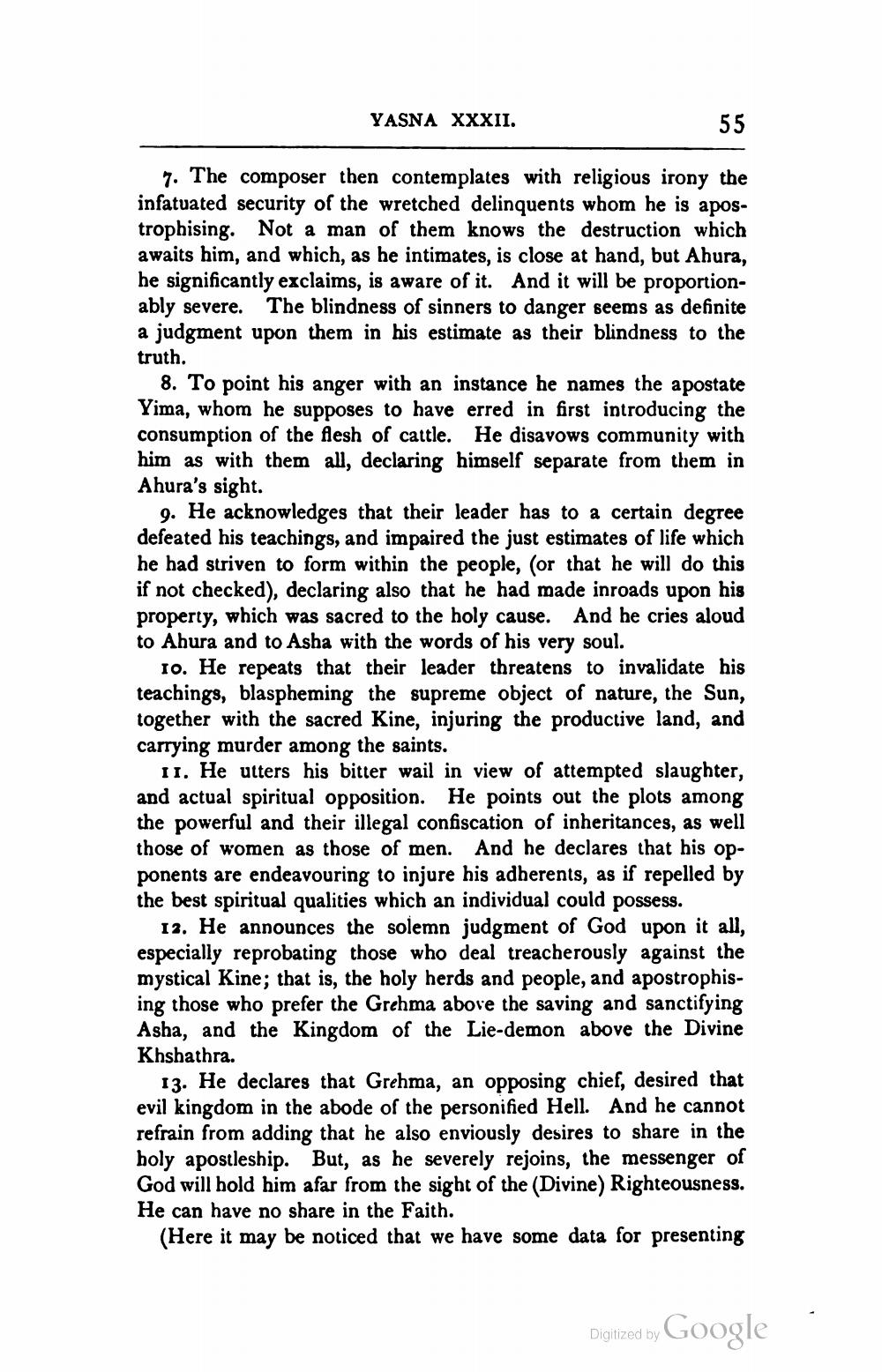________________
YASNA XXXII.
55
7. The composer then contemplates with religious irony the infatuated security of the wretched delinquents whom he is apostrophising. Not a man of them knows the destruction which awaits him, and which, as he intimates, is close at hand, but Ahura, he significantly exclaims, is aware of it. And it will be proportionably severe. The blindness of sinners to danger seems as definite a judgment upon them in his estimate as their blindness to the truth.
8. To point his anger with an instance he names the apostate Yima, whom he supposes to have erred in first introducing the consumption of the flesh of cattle. He disavows community with him as with them all, declaring himself separate from them in Ahura's sight.
9. He acknowledges that their leader has to a certain degree defeated his teachings, and impaired the just estimates of life which he had striven to form within the people, (or that he will do this if not checked), declaring also that he had made inroads upon his property, which was sacred to the holy cause. And he cries aloud to Ahura and to Asha with the words of his very soul.
10. He repeats that their leader threatens to invalidate his teachings, blaspheming the supreme object of nature, the Sun, together with the sacred Kine, injuring the productive land, and carrying murder among the saints.
II. He utters his bitter wail in view of attempted slaughter, and actual spiritual opposition. He points out the plots among the powerful and their illegal confiscation of inheritances, as well those of women as those of men. And he declares that his opponents are endeavouring to injure his adherents, as if repelled by the best spiritual qualities which an individual could possess.
12. He announces the solemn judgment of God upon it all, especially reprobating those who deal treacherously against the mystical Kine; that is, the holy herds and people, and apostrophising those who prefer the Grehma above the saving and sanctifying Asha, and the Kingdom of the Lie-demon above the Divine Khshathra.
13. He declares that Grehma, an opposing chief, desired that evil kingdom in the abode of the personified Hell. And he cannot refrain from adding that he also enviously desires to share in the holy apostleship. But, as he severely rejoins, the messenger of God will hold him afar from the sight of the (Divine) Righteousness. He can have no share in the Faith.
(Here it may be noticed that we have some data for presenting
Digitized by Google
Digitized by




